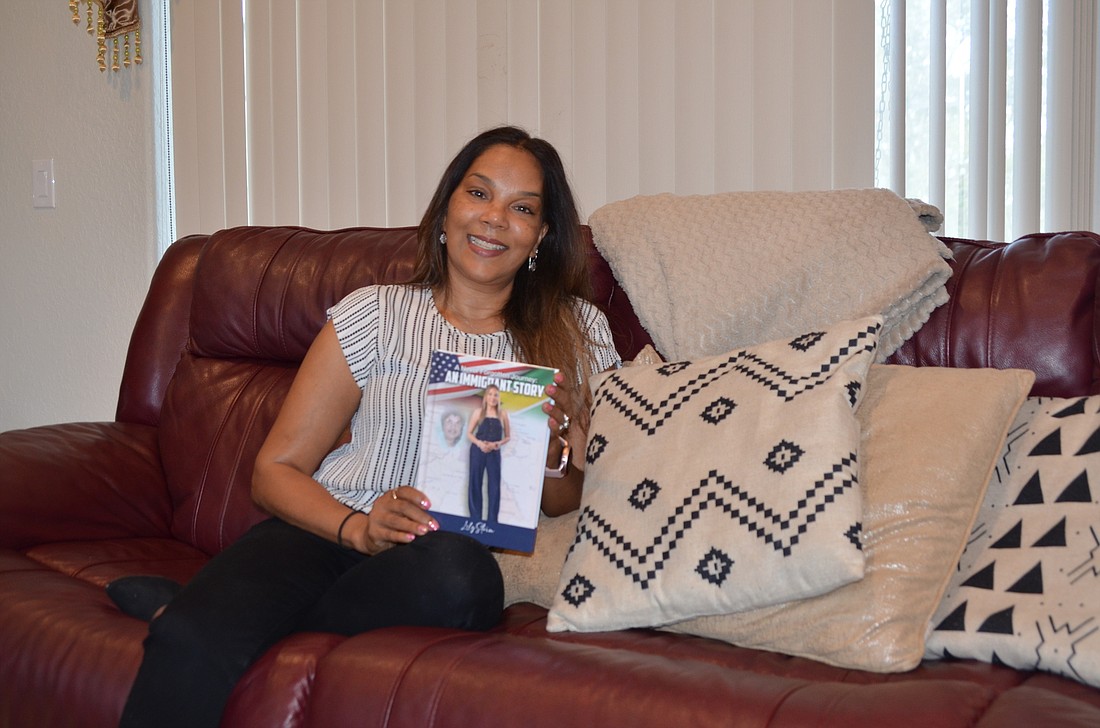- December 22, 2024
-
-
Loading

Loading

When Lily Storm was growing up, she always admired the way her mother took care of her four daughters — protecting them from an alcoholic father, going out into the work force to provide for the family, ignoring the folks in the community who thought she should be in her home and not out working.
As teenagers, Storm and older sister Asia had the opportunity to move to the United States with the promise of a better life.
Storm, now a Winter Garden resident, never forgot the many sacrifices made by her mother, Haimdai Sahadeo — and she certainly never planned to write a book about her life experiences. But she had stored up years of memories that she felt needed to be written down. It was a healing process for her.
In the self-published “A Never Forgotten Journey: An Immigrant Story,” Storm offers a glimpse into her childhood and what it was like watching her father bully and control her mother for years.
“My mother was born and raised in a super archaic and barbaric society where rogue mentality and old traditions trump the needs, wants, desires and purpose of women,” Storm said. “Men single handedly ruled the roost. It was a society rooted in male dominance. Women were beaten into submission … by the men in their lives. My mother lived that life.”
When Sahadeo entered the workforce, Storm said, “she led a simple and quiet revolution, broke down the norms, challenged the rogue mentality and forever changed the dynamics of life for women — not just in her village but in surrounding villages as well. She literally became a role model, though, not by choice.
“I was in awe of her,” Storm said. “I still feel it today.”
When a family friend offered to bring the two older sisters to the U.S. for better opportunities, Sahadeo said yes, and they began a new life in New Jersey.
“You can’t imagine that culture shock; I lived in an undeveloped village,” Storm said. “We fixed the roads ourself. No running water. There was one well way, way down. That was our gathering spot. In the evening we would run with our buckets to get water.”
In New Jersey, they embraced their new life, received an education and began their careers.
When the chance arose, the two brought over their sister Lulu in 1991. A year later, Kenya, the youngest sister, and their mother moved to the U.S.
REMEMBERING THE JOURNEY
Storm said she didn’t set out to write a book.
“I was just a little girl growing up experiencing, seeing, witnessing a whole lot in my life, in my family’s life, in my environment,” she said. “I didn’t realize I was taking it all in … (and) writing chapters in my head.
“I wrote my book because I was afraid I was going to forget my mom,” she said. “I was afraid she was only going to exist only in my mind. I wanted to keep her memory alive.”
She recalled many dark moments in her life through the writing process, but in writing, she healed.
“That was always a thorn in my side — Dad always wanted a son,” she said. “He saw (Mom) as inferior. She couldn’t give him a son. … He gradually became an alcoholic. … I went back in 1987 and visited him, and I realized it was an illness and he couldn’t help it. The anger and the rage I felt for him disappeared. When I looked at him, I felt sorry for him. … He was suffering just as much as we were suffering. I reconciled with him.”
Sahadeo lived in the U.S. for 13 years before she died of cancer at the age of 57.
“My whole regret in life — I wanted to sit her down and say ‘Mom, I got it now; back then I didn’t get it,” Storm said. “My mom, she knew that she had to step up, she knew she had to do something. She was the type of woman that knew her place but wasn’t going to do that. … She always wanted more for us.”
The book is available at amazon.com and ladystormfoundation.com.
Storm’s next step is to have the book made into a movie and shown at film festivals. A writer currently is writing the screenplay.
LADY STORM FOUNDATION
Storm is at peace with her own journey. She said she has found her purpose and is determined to give back, much like her mother did. She created the Lady Storm Foundation, which reaches out to high-risk, low-income communities by serving food, educating against violence and child abuse, and providing resources and information for people to stay safe.
“We didn’t have much in Guyana, but she always had something to give,” Storm said. “I kept going back to that. I can honestly say mom framed my entire life, my entire thought process.
Before I even established a foundation officially, I would buy groceries at the holidays and stand in the parking lot and hand out food. That’s how the foundation started.
“That’s my main focus: To help people, and that’s just an extension of my mother’s legacy,” Storm said.